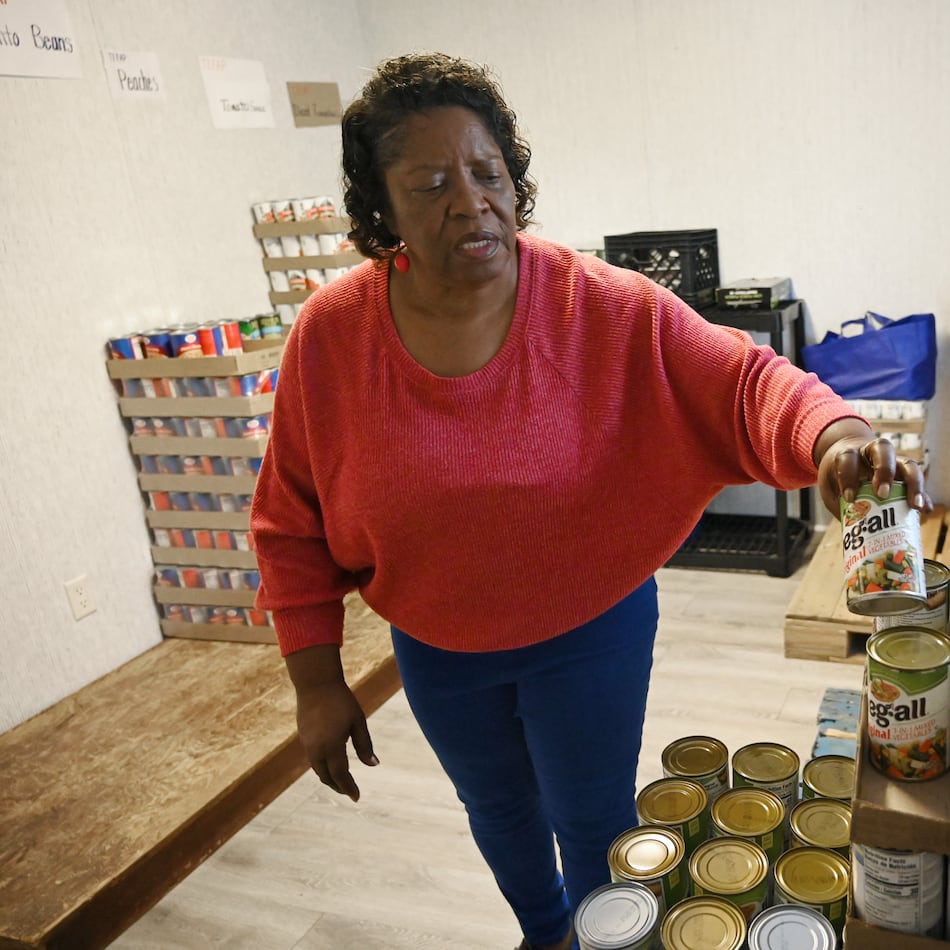Former residents of the homeless encampment where Cornelius Taylor was crushed to death by city of Atlanta equipment trying to clear the site have asked the city to do more to ensure that people are guaranteed safe, permanent housing and wraparound services.
The residents and activists with The Justice for Cornelius Taylor Coalition held a rally outside City Hall Monday and said they would deliver a petition to city officials asking them to make sure that wraparound services are better funded so people are less at risk of returning to homelessness.
They also renewed their call for an end to encampment sweeps and want the city to rename Old Wheat Street to Cornelius Taylor Street — the roadway on which the encampment existed where Taylor was killed Jan. 16 when a Department of Public Works front loader hit him.
The coalition raised concerns about conditions at Welcome House, the supportive housing program and apartment complex where the city placed residents after the Old Wheat Street camp was cleared in July.
Complaints about rats, roaches, mold and security at the complex surfaced during the rally.
Taylor’s friend and former camp resident Allen Hall said he had opted for housing in the city’s West End and did not take up the city’s offer to move from the camp to the complex.
“Personally, I refused to live in conditions at Welcome House,” he told The Atlanta Journal-Constitution. “I would have rather been homeless than stay at Welcome House.”
Scott A. Walker, president and CEO of 3Keys Inc., which owns and operates Welcome House, said there is not a rodent problem at the complex and it had “invested significant resources in pest control to ensure this remains the case.”
Walker added he has not been made aware of any issues with mold, and the complex is properly staffed.
Longtime homelessness advocate and coalition member Tim Franzen said conditions at Welcome House are “not great” but credited the staff there for their work.
“They’re working with so little resources, and they really are doing as much as they can with what little resources they have,” Franzen said.
Taylor’s fiancee, Lolita Griffeth, said he was her “protector” and said he stayed by her side as she recovered in the hospital from an aneurysm.
“Cornelius loved breakfast … especially cereal. He was funny. He was willing to take care of anyone. He was smart. He could rap. Loved to draw. That’s what I want you all to remember about him,” Griffeth said.
“Give the homeless in this city the basic housing that we need,” she said. “Not just the people from Old Wheat Street, but everyone in this city.”
Credit: arvin.temkar@ajc.com
Credit: arvin.temkar@ajc.com
After Taylor’s death, Mayor Andre Dickens convened a homelessness task force to recommend ways to avert a similar tragedy and ensure that safety checks are in place when camps are cleared.
Partners for HOME, which coordinates the city’s homeless strategy, has said it is taking a housing-first approach as it aims to clear downtown camps and permanently house 400 people by the end of this year and before the FIFA World Cup games next summer.
So far, the initiative has led to the creation of close to 430 permanent supportive housing units, nonprofit officials said, and more than 170 people had been placed in permanent housing.
The nonprofit’s CEO, Cathryn Vassell, said 17 of the 19 people living at the Old Wheat Street encampment had been placed in permanent supportive housing or will be soon.
“This includes eight individuals living in permanent supportive housing units at Welcome House, four at Ralph David House, and one at the Melody,” Vassell said in a statement. “Two additional clients have scheduled move-ins at Welcome House, and one is scheduled for move-in at the Salvation Army’s permanent supportive housing.
“For the two remaining clients, we are in the process of identifying the right housing solutions that fit their needs.”
She said everyone is assigned a caseworker and offered life-skills training, job resources, substance use and mental health services, and help obtaining benefits such as food stamps.
Rayna Plummer, a spokesperson for the mayor’s office, said the city partnered with the nonprofit to make sure every resident “received housing and support for a safe, dignified transition.”
Any “assertion that wraparound services are not being provided is inaccurate,” Plummer added.
Partners for HOME’s 2025 point-in-time count estimates there are close to 2,900 unhoused people in the city. The majority, or about 80%, identified as Black, according to the nonprofit.
For activists with the coalition, Old Wheat Street has been a test run for how city officials will treat its unhoused population as the World Cup nears.
“For anybody that works in the trenches, the reality is the housing stock is not there. What is available is oftentimes substandard,” said Franzen.
Franzen and other coalition members said earlier this year that some residents had fallen through the cracks without access to food, case management, housing and other resources.
After the rally, District 5 Council member Liliana Bakhtiari said the public should not be left with the impression that the city “didn’t do anything.”
“I don’t want you to think that there’s nobody here that cares. I fought so hard to start a case manager program because I believe in wraparound services,” Bakhtiari said during a City Council meeting. “We have tons of stuff to improve on.”
Credit: Arvin Temkar/AJC
Credit: Arvin Temkar/AJC
About the Author
Keep Reading
The Latest
Featured


